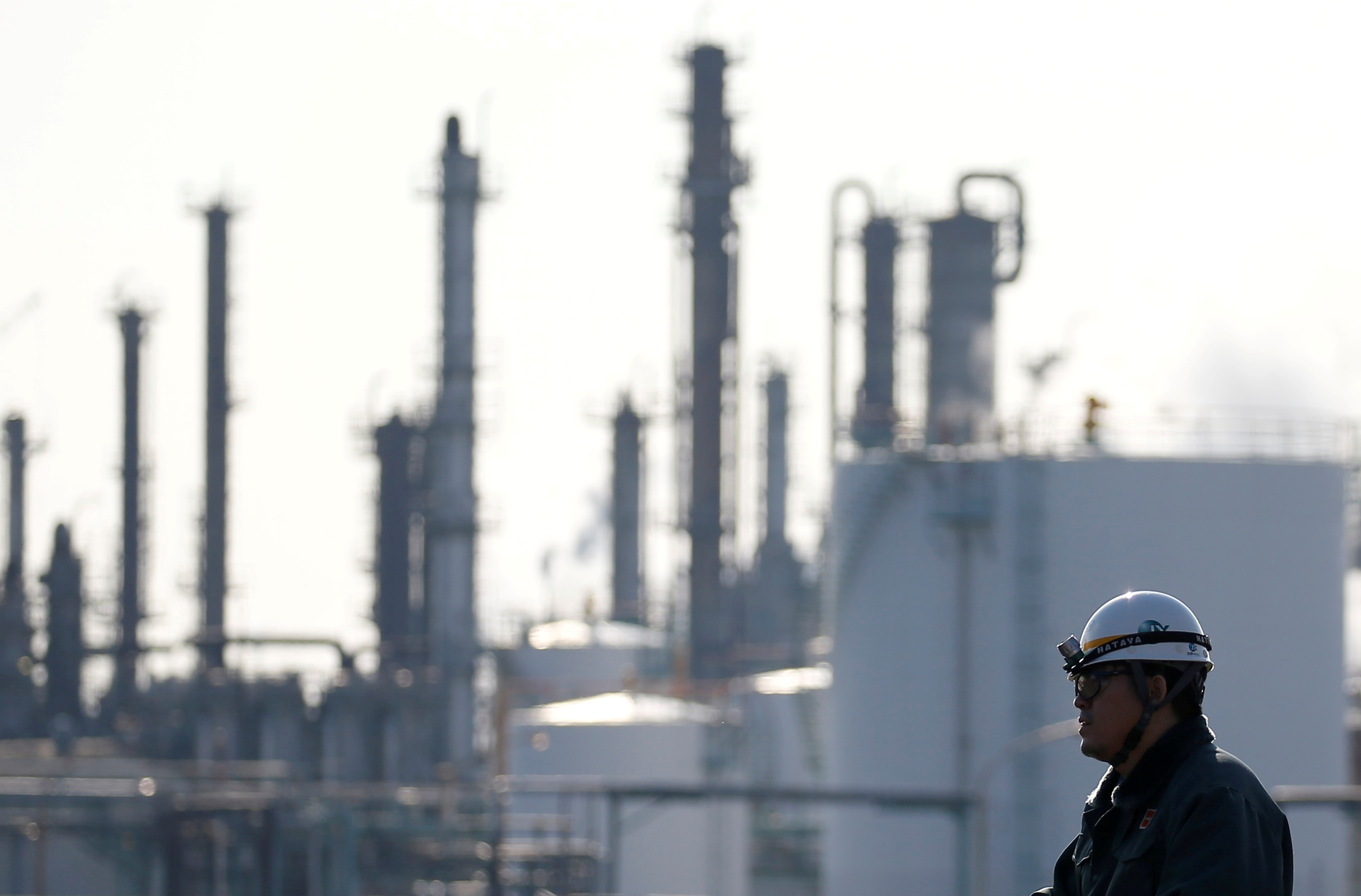A worker walks near a factory at the Keihin industrial zone in Kawasaki, Japan February 28, 2017. REUTERS/Issei Kato/File Photo.

By Leika Kihara and Tetsushi Kajimoto
TOKYO (Reuters) – Japanese business confidence worsened to a two-year low in the March quarter, a central bank survey showed, underscoring concerns that Sino-U.S. trade tensions and softening global demand were taking a toll on the export-reliant economy.
The damage was most pronounced among big manufacturers, where sentiment soured at the fastest pace in more than six years, stoking fears that uncertainty over the global outlook could discourage companies from spending on wages and expenditure.
The gloomy survey, which adds to growing signs of weakness in the economy, will keep the pressure on the Bank of Japan to maintain or even ramp up its massive stimulus program, analysts say.
“We see overall weak numbers and the outlook is worsening, reflecting the slowdown in Japan’s economy,” said Hiroshi Miyazaki, senior economist at Mitsubishi UFJ Morgan Stanley Securities.
“Eventually, the slowing economy will hurt employment, so there is a growing chance the BOJ will have to re-examine its policies,” he said.
The headline index for big manufacturers’ sentiment stood at plus 12 in March, worse than plus 19 marked three months ago and a median market forecast of plus 14, the BOJ’s closely-watched quarterly “tankan” survey showed on Monday.
The index hit the lowest level since March 2017 and fell at the fastest pace since December 2012, as manufacturers felt the pinch from slumping demand for electronics parts, automobiles and machinery goods, the survey showed.
The index for non-manufacturers fell to plus 21 from plus 24 in the December survey, hitting the lowest level since March 2017 and undershooting a market forecast of plus 22.
Both big manufacturers and non-manufacturers expect business conditions to worsen further in the three months ahead, the survey showed, suggesting the hit from simmering trade tensions could broaden.
For now, companies’ spending plans are holding up. Big firms expect to increase capital expenditure by 1.2 percent in the year that began in April, compared with a median market forecast of a 0.4 percent decline.
But indices measuring price developments show companies are unable to raise prices of their goods much even as a tightening job market pushes up labor costs, a development that could hurt their spending appetite ahead.
“Capex plans are starting off from a weak point, so investment is not as strong as before and sentiment is weak,” said Norio Miyagawa, senior economist at Mizuho Securities.
“The biggest concern is capex, but we have to consider other factors. If the stock market weakens or the yen rises, then the BOJ would likely ease further,” possibly by pacing up buying of exchange-trade funds (ETF), he said.
The survey is among various data the BOJ will examine at its two-day rate review later this month when it issues fresh quarterly economic growth and inflation projections.
The tankan’s sentiment indexes are derived by subtracting the number of respondents who say conditions are poor from those who say they are good. A positive reading means optimists outnumber pessimists.
(Additional reporting by Stanley White and Kaori Kaneko, Editing by Chris Gallagher and Sam Holmes)


